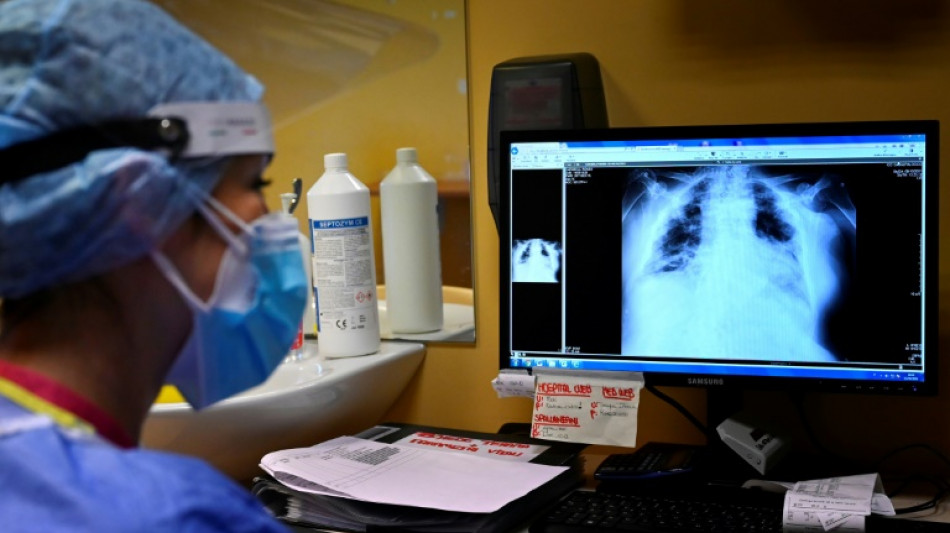

TB firmly on the rise after years of decline: WHO
Tuberculosis has rebounded after years of decline, killing an estimated 1.6 million people in 2021, up 14 percent in two years, new World Health Organization figures showed Thursday.
TB, which was overtaken by Covid-19 during the worst of the pandemic as the world's biggest infectious killer, claimed an estimated 1.5 million lives in 2020 and 1.4 million in 2019.
And the WHO blamed the resurgence of the disease on the pandemic, saying the crisis had had a huge and ongoing impact on access to diagnosis and treatment.
"Globally, the annual estimated number of deaths from TB fell between 2005 and 2019, but the estimates for 2020 and 2021 suggest that this trend has been reversed," the UN's health agency said in its annual Global TB report.
Most of the estimated increase in TB deaths globally was accounted for by four countries: India, Indonesia, Myanmar and the Philippines.
The report said it was possible that TB would "once again be the leading cause of death worldwide from a single infectious agent, replacing Covid-19".
But Mel Spigelman, president of the non-profit TB Alliance, told AFP last week that that had already happened, comparing the annual TB death rate to the latest Covid-19 figures.
An estimated 10.6 million people fell ill with TB in 2021 -- a 4.5 percent increase on 2020, the WHO said.
"This is the first time in many years an increase has been reported in the number of people falling ill with TB and drug resistant TB," the WHO said.
And the incidence rate -- new cases per 100,000 population per year -- increased by 3.6 percent between 2020 and 2021, after declining by around two percent a year for most of the last two decades.
- Progress dented -
"The overarching finding of this report is that the Covid-19 pandemic continues to have a damaging impact on access to TB diagnosis and treatment and the burden of TB disease," the WHO update said.
"Progress made in the years up to 2019 has slowed, stalled or reversed, and global TB targets are off track.
"Intensified efforts backed by increased funding are urgently required to mitigate and reverse the negative impacts of the pandemic on TB."
Tuberculosis is caused by a bacteria that most often affects the lungs. Like Covid, it is transmitted via the air by infected people, for example by coughing. It is preventable and curable.
The WHO said conflicts around the world, the global energy crisis and associated risks to food security were likely to worsen the situation further.
"The top priority is to restore access to and provision of essential TB services, so that levels of TB case detection and treatment can recover to at least 2019 levels," the report said.
Eight countries accounted for more than two thirds of the global total of cases: India, Indonesia, China, the Philippines, Pakistan, Nigeria, Bangladesh and the Democratic Republic of Congo.
"If the pandemic has taught us anything, it's that with solidarity, determination, innovation and the equitable use of tools, we can overcome severe health threats," said WHO chief Tedros Adhanom Ghebreyesus.
"Let's apply those lessons to tuberculosis. It is time to put a stop to this long-time killer. Working together, we can end TB."
M.Fierro--IM




